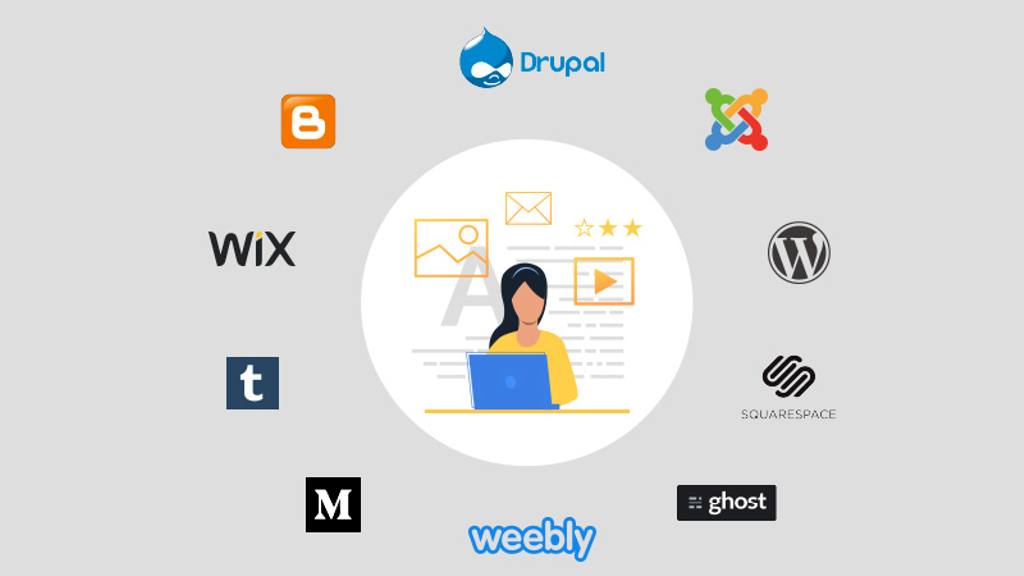
In the digital age, where information is abundant and attention spans are limited, bloggers face the challenge of reaching a broader audience and driving traffic to their websites. Social media platforms have emerged as powerful tools to address these challenges, offering bloggers a wide range of opportunities to engage with their audience, showcase their content, and increase their online presence. This article will explore various ways in which social platforms can be effectively utilized for blogging success.
Read More: How to Building a Sustainable SEO Strategy
The Power of Social Media in Blogging
Building an Audience
One of the key advantages of leveraging social media for blogging is its ability to help bloggers build a loyal and engaged audience. By regularly sharing valuable content and interacting with followers, bloggers can establish a sense of community, fostering meaningful connections with their readers.
Increasing Visibility and Reach
Social media platforms enable bloggers to amplify the reach of their content beyond their website’s organic traffic. Sharing blog posts on social platforms exposes the content to a wider audience, increasing the chances of it going viral and gaining popularity.
Driving Traffic to Your Blog
Social media acts as a gateway to redirect interested users to the blogger’s website. By strategically placing links to blog posts on various social platforms, bloggers can drive significant traffic and potentially increase their website’s search engine rankings.
Choosing the Right Social Platforms for Blogging

Understanding Your Target Audience
Different social media platforms cater to distinct demographics and interests. Understanding the target audience and their preferences is crucial for selecting the most appropriate platforms to focus on.
Identifying Platform Relevance
Bloggers should evaluate the relevance of each social platform to their niche and type of content. For instance, visually appealing content may perform better on platforms like Instagram, while industry-related articles might find a larger audience on LinkedIn.
Evaluating Platform Engagement
Engagement metrics, such as likes, shares, and comments, vary across different platforms. Bloggers should analyze the engagement levels to determine which platforms resonate best with their audience.
Creating Engaging Content for Social Media
Crafting Attention-Grabbing Headlines
An intriguing headline can capture the reader’s attention and entice them to click on the link to the blog post. Crafting catchy and informative headlines is vital for driving traffic from social media to the blog.
Utilizing Visuals and Multimedia
Visual content, such as images, infographics, and videos, performs exceptionally well on social media. Integrating multimedia into blog posts and social media shares enhances engagement and shareability.
Incorporating Hashtags and Keywords
Using relevant hashtags and keywords in social media posts makes the content discoverable by users interested in the specific topic. This practice helps bloggers expand their audience reach and improve the visibility of their content.
Leveraging Social Media Advertising for Blog Promotion
Sponsored Posts and Boosted Content
Social media platforms offer advertising options that allow bloggers to promote their content to a targeted audience. Sponsored posts and boosted content can significantly increase visibility and website traffic.
Targeted Ads for Increased Reach
Bloggers can use social media ad-targeting features to focus on specific demographics, interests, and behaviors, ensuring their content reaches the right audience.
Analyzing Advertising Metrics
To optimize advertising efforts, bloggers should analyze advertising metrics, such as click-through rates and conversions, and make necessary adjustments to improve performance.
Building a Community and Fostering Interaction
Responding to Comments and Messages
Engagement is a two-way process. Responding to comments and messages from followers demonstrates that bloggers value their audience’s opinions and fosters a sense of community.
Encouraging User-Generated Content
Encouraging followers to share their experiences, ideas, and content related to the blog creates a vibrant community and increases user involvement.
Hosting Live Q&A Sessions and Webinars
Live Q&A sessions and webinars allow bloggers to interact with their audience in real time, addressing their queries and providing valuable insights.
Cross-Promotion and Collaboration
Partnering with Influencers and Bloggers
Collaborating with influencers and bloggers in the same niche can introduce the blogger’s content to a new and engaged audience.
Guest Posting on Other Platforms
Writing guest posts for other blogs or platforms not only strengthens the blogger’s authority in the field but also drives traffic back to their own blog.
Participating in Blogging Communities
Joining blogging communities and forums allows bloggers to share knowledge, gain inspiration, and connect with like-minded individuals.
Measuring Success and Analyzing Data
Tracking Website Referrals from Social Media
Bloggers should monitor and analyze the traffic coming from social media platforms to understand which channels are most effective in driving traffic.
Monitoring Engagement and Follower Growth
Engagement metrics and follower growth provide valuable insights into the success of a blogger’s social media strategy.
Analyzing Social Media Insights
Each social platform provides analytics tools that offer data on post-performance, audience demographics, and more, helping bloggers refine their strategies.
The Impact of Social Platforms on SEO

Social Signals and Search Rankings
Social media engagement, such as likes, shares, and comments, can indirectly influence a website’s search engine rankings.
Link Building through Social Media
When bloggers share their content on social platforms, it increases the likelihood of others linking to their blog, which positively impacts SEO.
The Role of Social Shares in SEO
Content that receives significant shares on social media may gain more visibility, leading to higher organic search traffic.
Overcoming Challenges and Staying Consistent
Dealing with Negative Feedback
Bloggers should be prepared to handle negative feedback gracefully and use it as an opportunity to improve.
Handling Platform Algorithm Changes
Social media algorithms constantly evolve, affecting content visibility. Bloggers must adapt their strategies to stay relevant.
Creating a Sustainable Content Strategy
Consistency is crucial in blogging. Developing a content calendar and adhering to it helps bloggers maintain a steady flow of content.
Read More: 5 Marketing Mistakes Small Business Owners Make
FAQs
- Is it essential to be active on multiple social media platforms? While being present on multiple platforms can expand your reach, focus on the ones most relevant to your niche and where your target audience is most active.
- How often should I post on social media to promote my blog effectively? Consistency is key. Post regularly but avoid overwhelming your audience. Quality content matters more than quantity.
- Can social media really impact my blog’s search engine rankings? Yes, social signals indirectly influence SEO, so engaging with your audience on social media can positively impact your blog’s rankings.
- What should I do if I receive negative comments on social media? Address negative feedback professionally and use it as an opportunity to improve your content and build a stronger relationship with your audience.
- How can I measure the success of my social media efforts? Track metrics like website referrals, engagement rates, and follower growth to gauge the effectiveness of your social media strategy.
Conclusion
In conclusion, social media platforms offer an array of opportunities for bloggers to increase their reach, engage with their audience, and drive traffic to their websites. By understanding their target audience, creating engaging content, leveraging social media advertising, fostering interaction, and measuring success, bloggers can harness the power of social platforms for successful and impactful blogging.








3 Comments